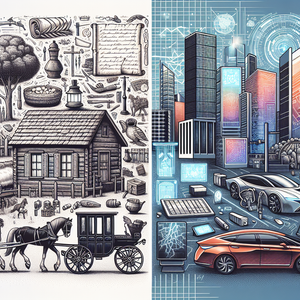The Ethical Dilemma of Automated Breath Care

The potential benefits of automation in respiratory care are undeniable. AI-powered tools are already demonstrating their ability to streamline processes and improve outcomes for patients with respiratory illnesses. Among the most promising developments are: AI-Powered Ventilators, Wearable Sensors for Continuous Monitoring, and Automation in Resource-Limited Settings. These innovations have the potential to revolutionize respiratory care by improving efficiency, reducing costs, and making advanced treatment accessible to a broader population. However, alongside these promises lie deeply rooted ethical concerns.
The Loss of Human Touch in Patient Care
One of the most significant ethical dilemmas posed by automated breath care is the potential loss of the 'human touch' that defines compassionate healthcare. Respiratory therapists do more than operate machines—they connect with patients on an emotional level, offering reassurance and adapting care to meet individual needs. Research consistently underscores the importance of interpersonal care in building patient trust and satisfaction. The absence of these elements in a fully automated care model could lead to increased feelings of isolation and anxiety among patients, potentially hindering their recovery. This loss of human connection is particularly concerning in end-of-life care, where patients and families often rely on the emotional support and guidance of healthcare providers to navigate difficult decisions.
Equity and Accessibility Concerns
While automation is often championed as a way to bridge healthcare gaps, it could also inadvertently widen disparities. High-tech solutions are typically expensive to develop and implement, which raises concerns about equitable distribution. Rural hospitals and clinics in low-income areas may lack the financial resources to invest in state-of-the-art respiratory care devices. Additionally, the reliance on AI and digital tools introduces challenges related to digital literacy. Patients who are unfamiliar with technology or lack access to reliable internet services may find it difficult to engage with automated systems, creating yet another barrier to care.
Can Machines Truly Emulate Empathy?
At the heart of the ethical debate surrounding automated breath care is the question of whether machines can emulate empathy—a cornerstone of healthcare. While AI excels at analyzing data and making decisions with speed and accuracy, it lacks the emotional intelligence required to comfort a frightened patient or navigate the complexities of human emotion. As healthcare becomes increasingly automated, we must grapple with the ethical implications of prioritizing efficiency over empathy. This dilemma is particularly acute in fields like respiratory therapy, where patients often face life-altering or life-threatening conditions.
The Role of Respiratory Therapists in an Automated Future
Rather than eliminating the need for respiratory therapists, automation could redefine their roles. In a hybrid care model, therapists might focus on integrating technology into patient care while continuing to provide the empathy and interpersonal support that machines cannot offer. To prepare for this shift, training programs for respiratory therapists would need to evolve. Future curricula might include courses on data analysis, AI ethics, and machine troubleshooting, alongside traditional medical education. By embracing these new responsibilities, respiratory therapists can remain indispensable in an increasingly automated healthcare landscape.
The rise of automation in respiratory therapy represents both an exciting opportunity and a profound ethical challenge. On one hand, AI and robotics have the potential to improve efficiency, reduce costs, and expand access to care. On the other hand, they risk dehumanizing the patient experience and exacerbating healthcare inequities. Ultimately, the goal should not be to create a healthcare system devoid of human touch but to integrate technology in a way that amplifies the strengths of both machines and caregivers. By doing so, we can build a future where innovation and empathy coexist harmoniously, delivering better outcomes for patients and providers alike.
AI & Machine Learning Specialist in Healthcare
Google Health, Philips Healthcare, Siemens Healthineers
Core Responsibilities
Design and develop AI algorithms to support automated healthcare tools, such as ventilators or diagnostic systems.
Collaborate with medical professionals to ensure AI models address real-world clinical needs, like optimizing respiratory therapies.
Analyze patient data to improve predictive models for early detection of respiratory conditions.
Unique Skills
Expertise in machine learning frameworks (e.g., TensorFlow, PyTorch) combined with a strong understanding of medical datasets and clinical workflows.
Biomedical Engineer – Respiratory Technologies
Medtronic, GE Healthcare, ResMed
Core Responsibilities
Develop and test advanced respiratory care devices, including AI-powered ventilators and wearable monitoring systems.
Ensure compliance with healthcare regulations (e.g., FDA) and safety standards for medical devices.
Work with cross-functional teams to integrate AI and IoT technologies into respiratory equipment.
Unique Skills
Strong foundation in biomedical engineering principles, proficiency in CAD software, and experience with medical device prototyping and testing.
Clinical Respiratory Therapist – Technology Integration Specialist
Major hospital systems (e.g., Mayo Clinic, Cleveland Clinic), medical device manufacturers
Core Responsibilities
Act as a liaison between medical staff and technology teams to integrate automated systems into respiratory care.
Train healthcare providers and patients on how to use AI-powered devices effectively.
Evaluate the performance and reliability of automated respiratory equipment in clinical settings.
Unique Skills
Respiratory therapy certification (e.g., RRT), familiarity with AI-driven medical devices, and strong communication skills for patient and provider education.
Healthcare Data Scientist – Respiratory Analytics
IBM Watson Health, Cerner Corporation, Epic Systems
Core Responsibilities
Analyze large datasets from wearable devices or automated ventilators to uncover trends in respiratory health.
Develop predictive models to identify at-risk patients and recommend timely interventions.
Collaborate with healthcare providers to translate data insights into actionable clinical strategies.
Unique Skills
Advanced statistical and programming skills (e.g., Python, R), experience with healthcare data standards (e.g., HL7, FHIR), and knowledge of respiratory conditions.
Ethics Consultant – AI in Healthcare
Research institutions, government health agencies, healthcare technology companies
Core Responsibilities
Provide ethical guidance on the development and implementation of automated healthcare technologies.
Conduct risk assessments related to patient privacy, equity, and the potential loss of human-centered care.
Collaborate with developers, clinicians, and policymakers to create ethical frameworks for AI in medicine.
Unique Skills
Background in bioethics, strong knowledge of AI systems, and experience in drafting ethical policies and guidelines for healthcare technologies.


